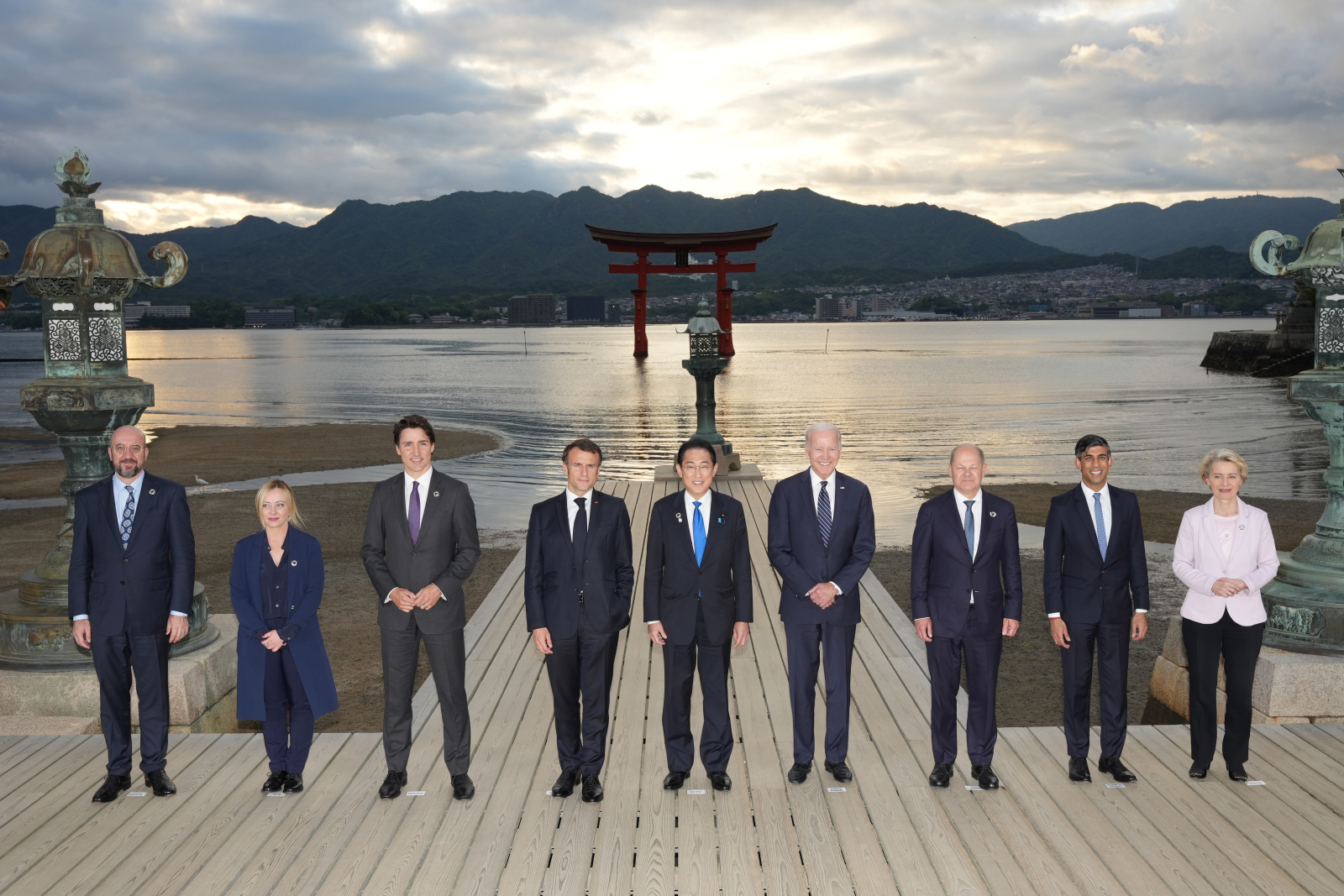G7 Hiroshima Summit: What type of Japanese and European leadership in a fragmented world?

Practical information
The G7 summit in Hiroshima showcased a new international order in the making.

In this fluid international environment, Tokyo has the potential to play a significant role: a major economic power, it is also committed to upholding the rule of law and promoting global peace and security through its role as a non-permanent member of the United Nations Security Council this year, and initiatives such as the Free and Open Indo-Pacific (FOIP) vision, or the Comprehensive and Progressive Agreement for Trans-Pacific Partnership (CPTTP). Japan remains a staunch advocate for nuclear disarmament and non-proliferation.
In a similar way, the European Union is a normative and economic power that aims at promoting multilateralism based on liberal rules as a stabilizing solution to mitigate great powers competition and engage developing countries.
This being said, the world is increasingly fragmented, as revisionist powers grow more assertive while the system becomes multipolar. For G7 countries, the question of their relations with the Global South is especially significant. Countries increasingly prioritize their own interests, while the rise of transnational challenges such as terrorism, pandemics, and climate change requires greater cooperation.
The traditional models of global cooperation are being tested by the complex challenges of the 21st century. What are the characteristics of this emerging world order? How can the G7 navigate this new environment? Is it still relevant? What kind of leadership and role can Japan and Europe demonstrate in such a context?
This seminar will be held on Zoom, in English.
PROGRAM
Following a brief (10 minutes) set of remarks by each speaker, the discussion will become interactive and led by the Chair. Q/A from the audience will be included in the discussion.
Chair: Céline PAJON, Head of Japan Research, French Institute of International Relations (Ifri)
- Bertrand BADIE, Professor Emeritus, Sciences Po CERI
- Kiichi FUJIWARA, Professor Emeritus, Graduate School for Law, University of Tokyo and Politics and Visiting Professor at the Institute for Future Initiatives, University of Tokyo
- Reinhold BRENDER, Former Head of the European External Action Service (EEAS) Division in charge of relations with Japan, South and North Korea, Australia, New Zealand and the Pacific States
Replay
Related Subjects
Other events

EV Supply Chains for Japan and Europe: Strengthening Economic Security
Economic security aims to ensure the resilience of supply chains for key industries: the case of electric vehicle production in Japan and Europe will be discussed.

What Kind of Technological Partnership with India?
As India asserts its technological ambitions and seeks to reduce its dependence on China, Europe is stepping up its efforts to diversify its strategic partnerships. What opportunities arise from the convergence of these two dynamics? Can cooperation in cutting-edge sectors—from electric vehicles to artificial intelligence and semiconductors—transform the Indo-European relationship into a lever for strategic autonomy?






